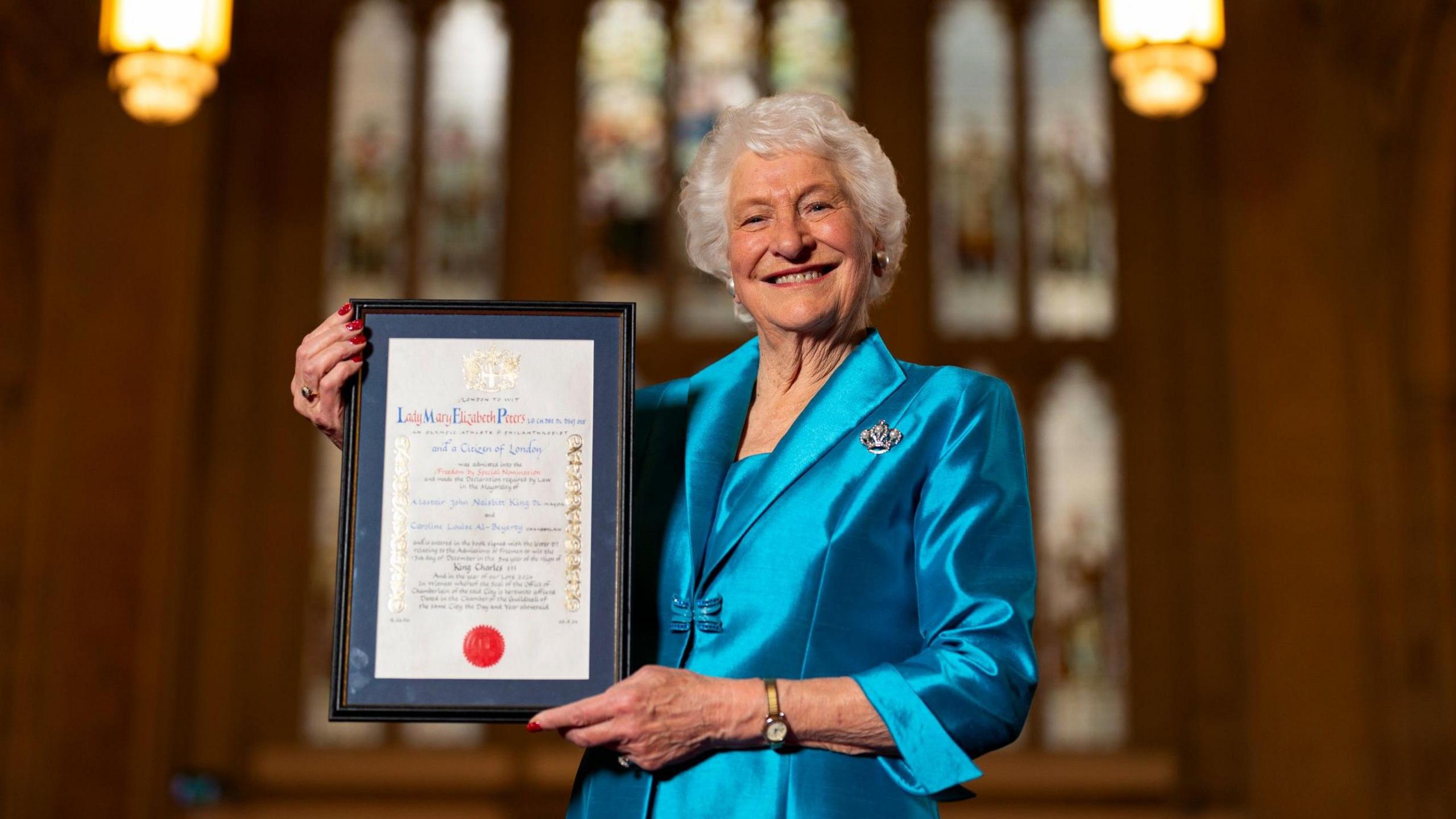What does it mean to get the Freedom of the City of London?
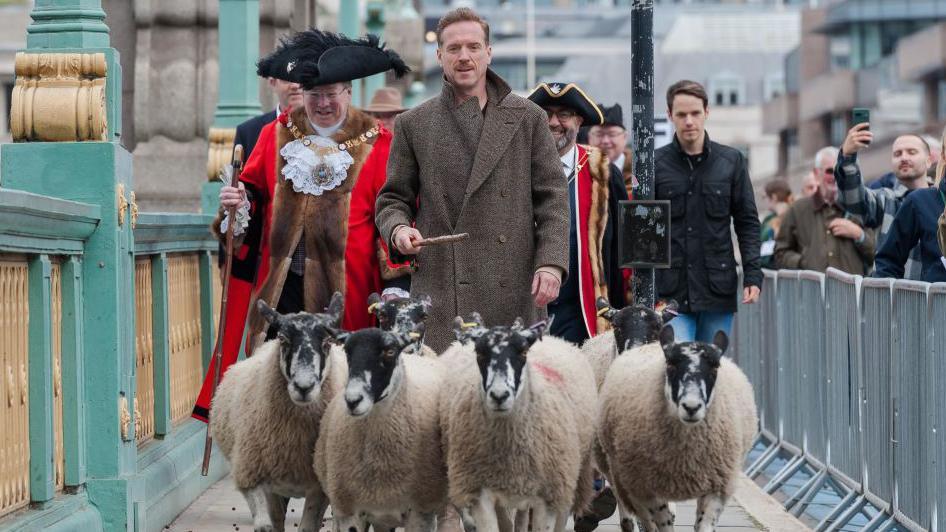
Hollywood actor Damian Lewis, who became a freeman in 2013, made the most of the honour
- Published
BBC Radio London presenter Robert Elms has become the latest person to receive the Freedom of the City of London, at a ceremony in the Guildhall.
It's an honour that has been presented to those from royalty and sports stars, to Hollywood actors and business leaders. But what does it really mean - and why is it seen as being connected to sheep?
When Elms became a freeman, he took part in a tradition that's been around for a while.
"It is really, really old," says Laura Miller, who as the City's Clerk to the Court of the Chamberlain conducted the ceremony.
The common belief is the honour was first given in the 1230s, although Ms Miller says it was being "presented in some form" even before that.
"It's meant a lot of things over the centuries... The reason it's stuck around and it's still here today is it's always relevant," she says.
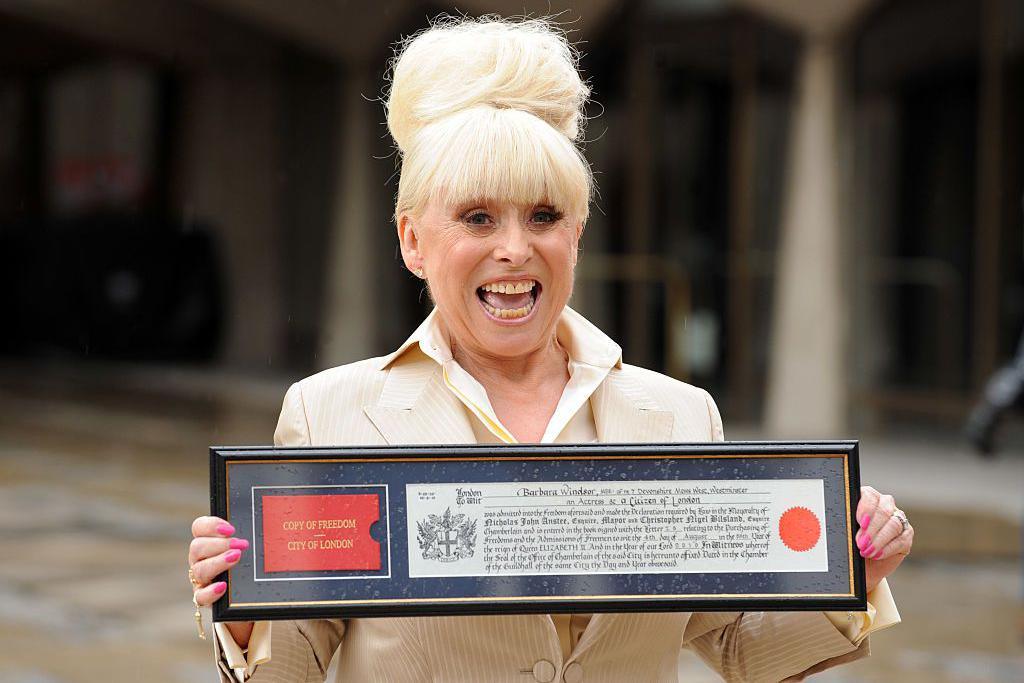
As the landlady of the Old Vic, perhaps it was always destiny that EastEnders star Barbara Windsor would be honoured
While being a "freeman" originally meant a person who was not the property of a feudal lord, the definition changed over time. In London, it came to mean someone who had been granted the Freedom of the City and was therefore allowed to trade within the Square Mile.
"It gave you the right to own things, to make money, to exist effectively in the City of London," says Ms Miller.
"I always think that cities are made… and really the freemen of the City of London were the people who made the City."
She says these days the Freedom of London is more like a "voluntary citizenship" that gives recipients "a sense of belonging".
"You do have access to networks of people who are trying to do things to improve London. It's a great way of connecting with people."
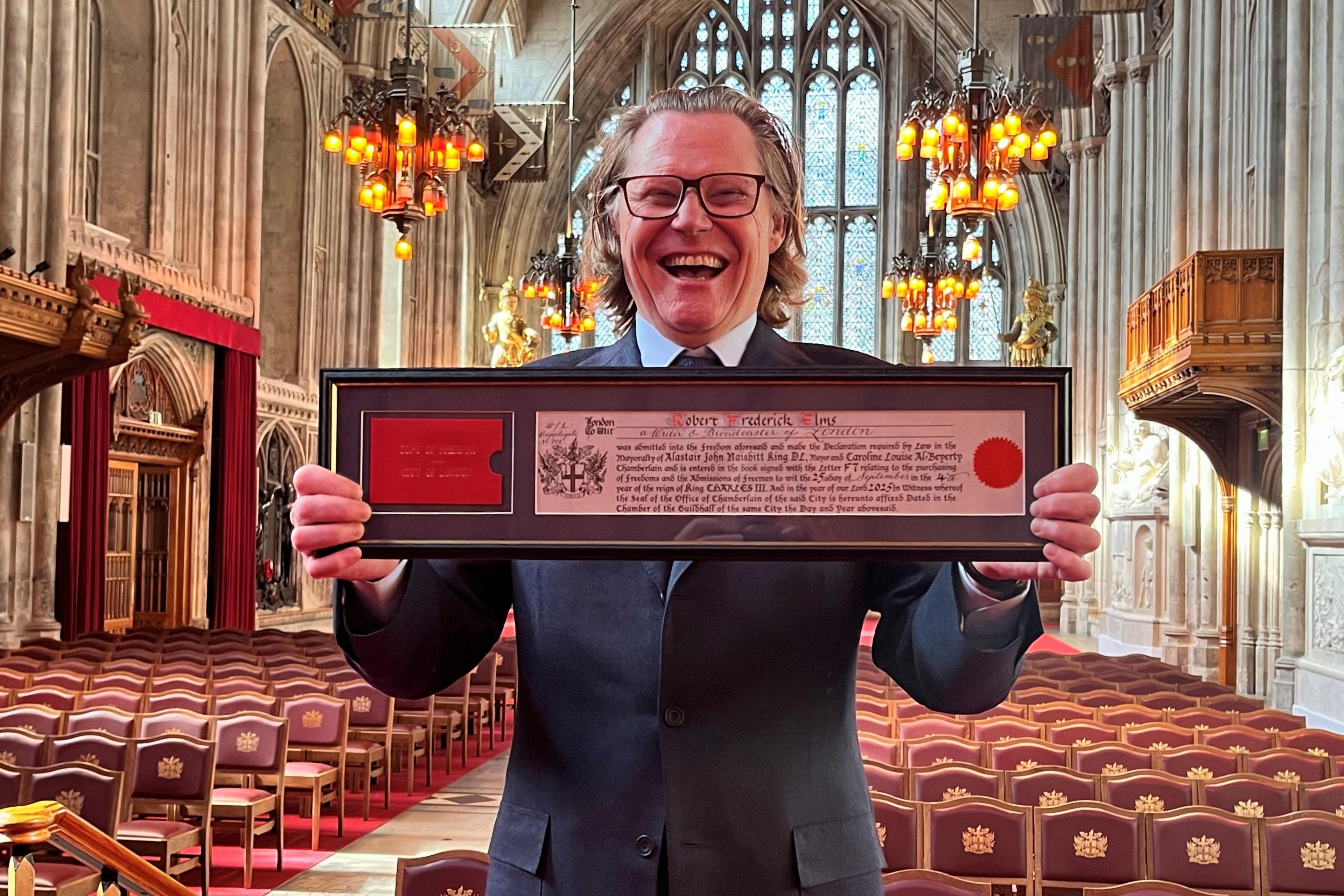
Unlike many recipients of the honour, Robert Elms does actually live within the Square Mile
There are various routes to become a freeman, external, with the award open to people of any nationality.
Some receive a special nomination because they have made "a very concrete contribution to the cultural life of London", says Ms Miller.
This is what Elms received, being a long-time London broadcaster and author who also played a major part the 1980s New Romantic movement as a music journalist - and even gave the band Spandau Ballet their name.
Another route to the Freedom of London is by joining one of the City's 113 Livery companies, some of which have been around for hundreds of years and were created as a way for people in similar trades to work together to survive.
"London was a challenging place, you had disease, you had war. You needed to band together," she explains.
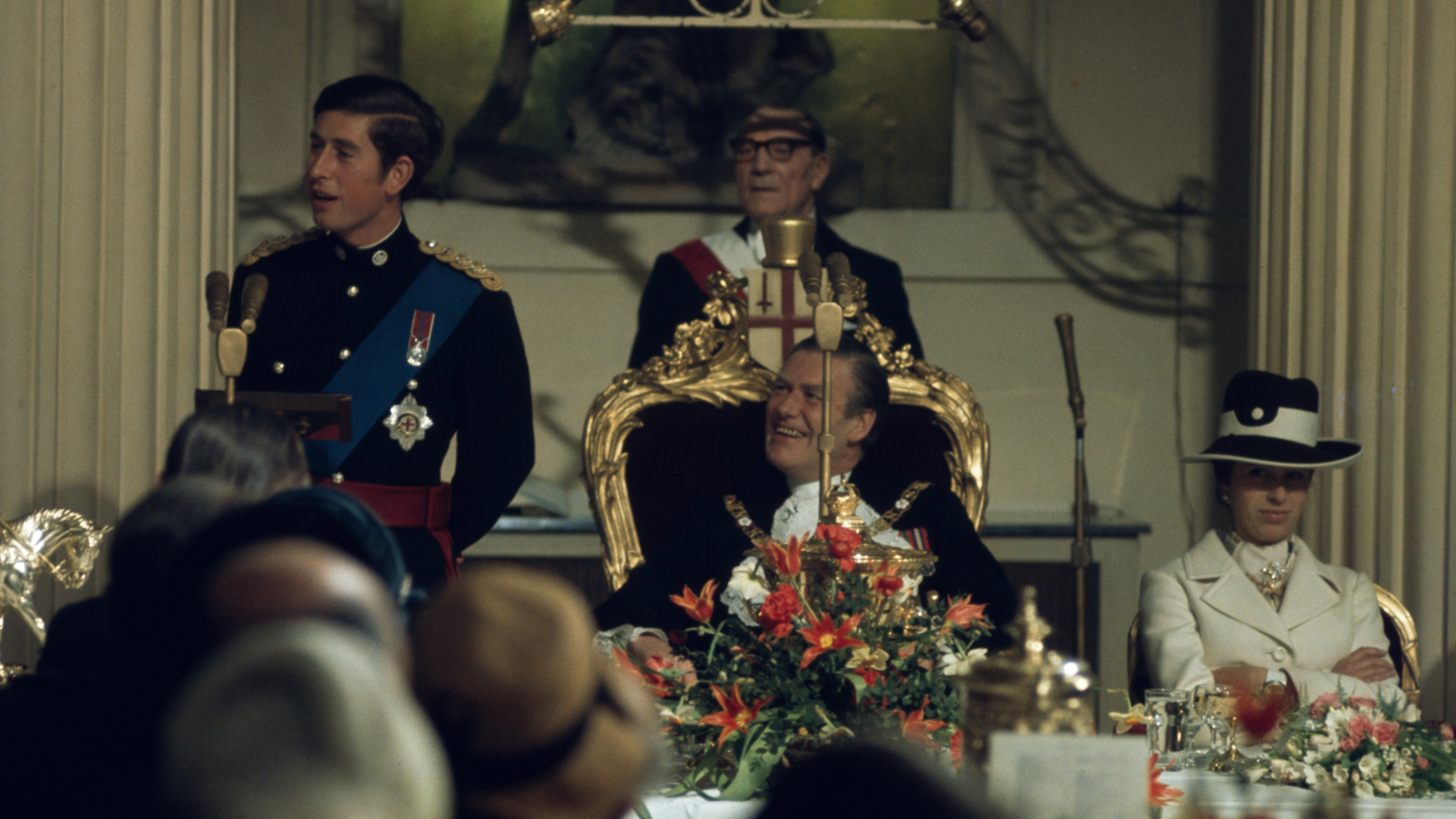
Even royalty is granted the award with King Charles receiving his at a ceremony in 1970
This also means that it is not only celebrities and dignitaries who receive the Freedom, but people from all walks of life, with ceremonies at the Guildhall being a regular occurrence.
"I was at a house party in Brixton and somebody was like, 'what's all this about? I mean, this is just a lot of old medieval stuff'... And I got quite cross and shouted out, 'anyone here got the Freedom of the City of London?' And about nine hands went up," says Ms Miller.
"Just last week, I gave the Freedom to a bunch of plumbers."
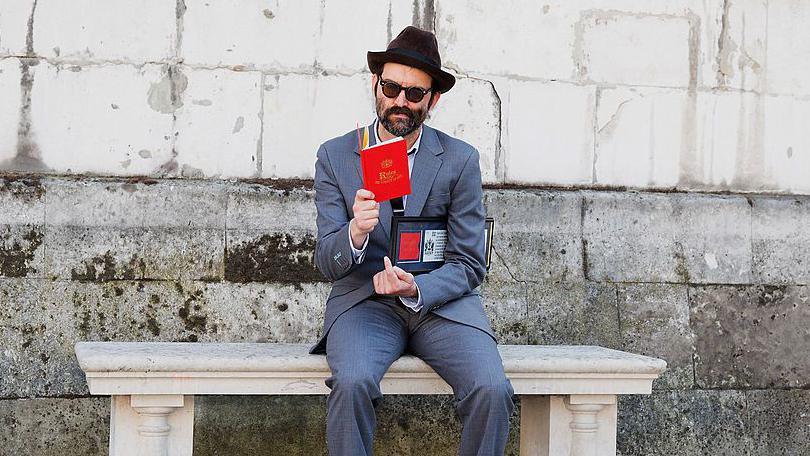
Eels frontman Mark Oliver Everett took note of the Rules for the Conduct of Life after he was presented as a freeman
The ceremony itself is medieval "in essence", according to Ms Miller.
The candidate is invited to read the Declaration of a Freeman and sign the Freeman's Declaration Book.
A copy of the Freedom is then presented along with a copy of the Rules for the Conduct of Life, which date from the mid-18th Century, with the act sealed with a handshake.
"It's quite business-like, it's quite sensible. Your freedom is a legal document - it's actually underwritten by Magna Carta," she says.
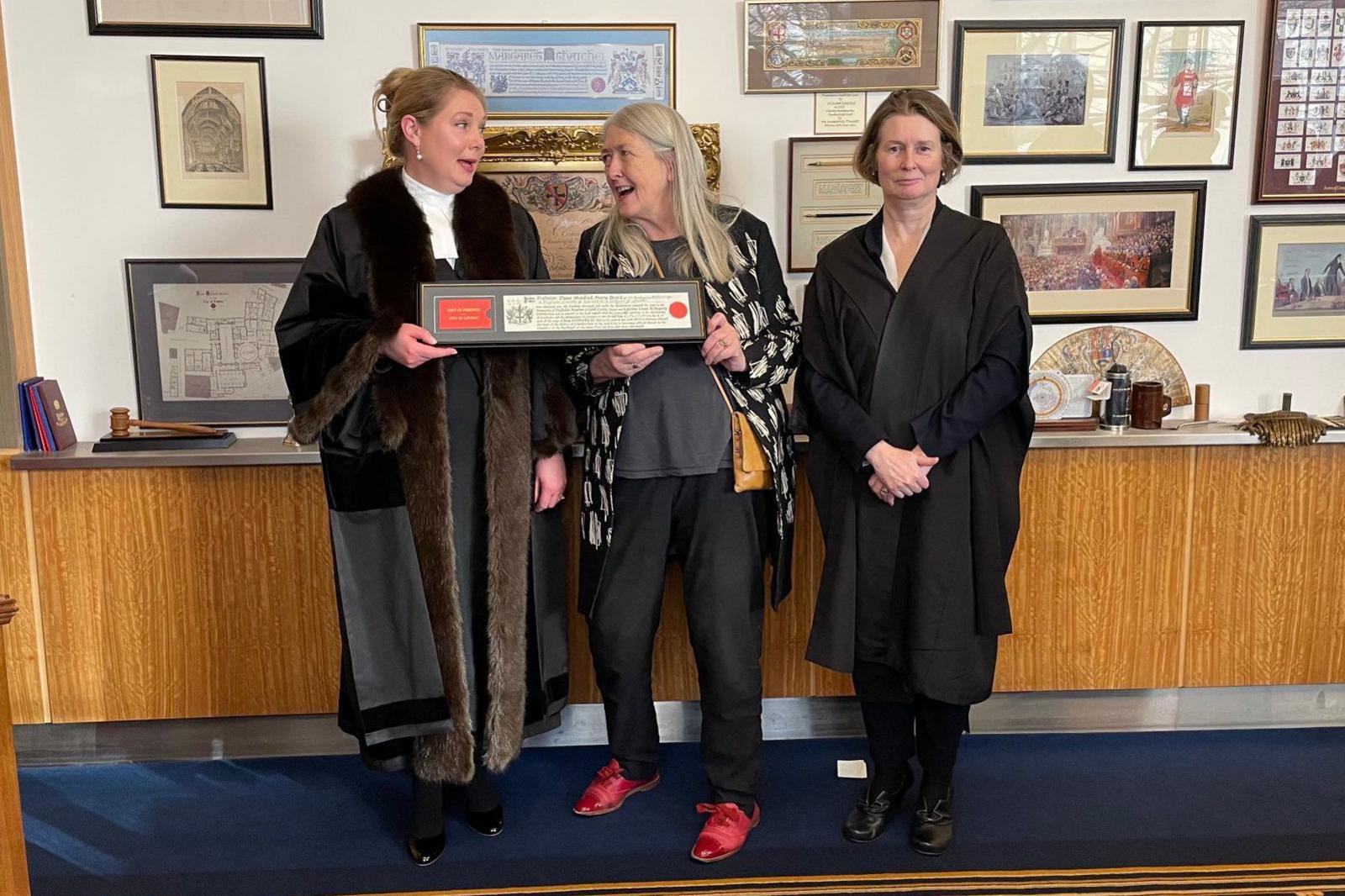
Dame Prof Mary Beard received her Freedom to the City of London in 2022
One of those to have been honoured in recent years is historian and broadcaster Prof Dame Mary Beard, who says the "wonderful" ceremony had "a real sense of history to it all".
"What I remember most vividly is being shown some of the memorabilia of those who had received the Freedom before.
"And there was a great lunch afterwards!" she adds.
Prof Beard says it is "the great connection with history that matters most" to her about being a freeman, although it did also give her "a chance to see something of the Old Bailey which was really fascinating", and "it's been a wonderful opportunity for some new experiences".
However, she points out: "I haven't done any sheep-driving yet."
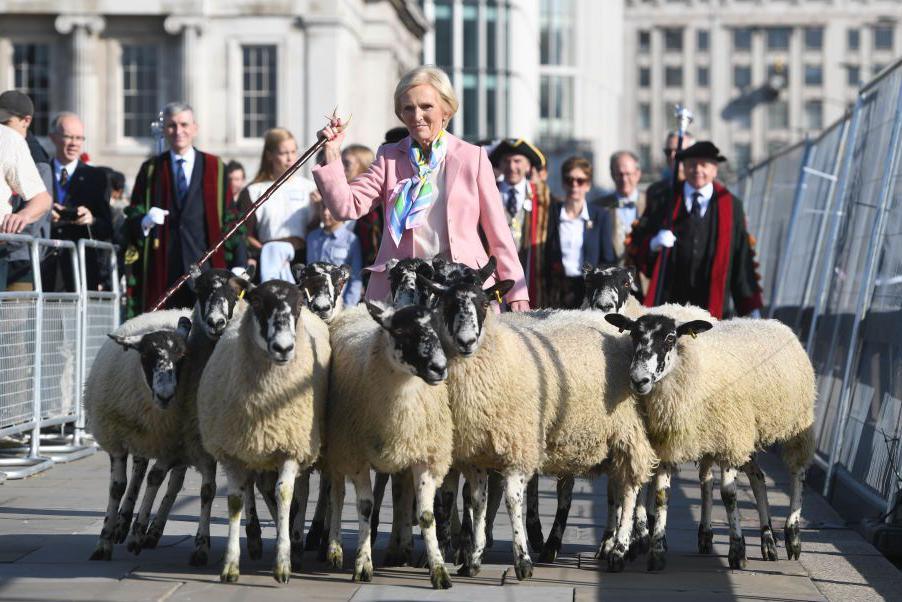
This year's charity sheep drive takes place on Southwark Bridge on Sunday and will be led by Countryfile's Adam Henson
And so on to the part of the Freedom which so many people seem to connect it with - that every year a celebrity and hundreds of the City's freeman drive a small flock of sheep across a London bridge for charity.
This quirk goes back to a time when there was only one crossing over the Thames into the City with tariffs being charged to use it - although not for those who had the Freedom.
"As a freeman or free sister, you could bring your goods across and until the 12 or 1300s, really the most valuable thing was sheep... so being able to bring them across that bridge without paying extra taxes was valuable," says Ms Miller.
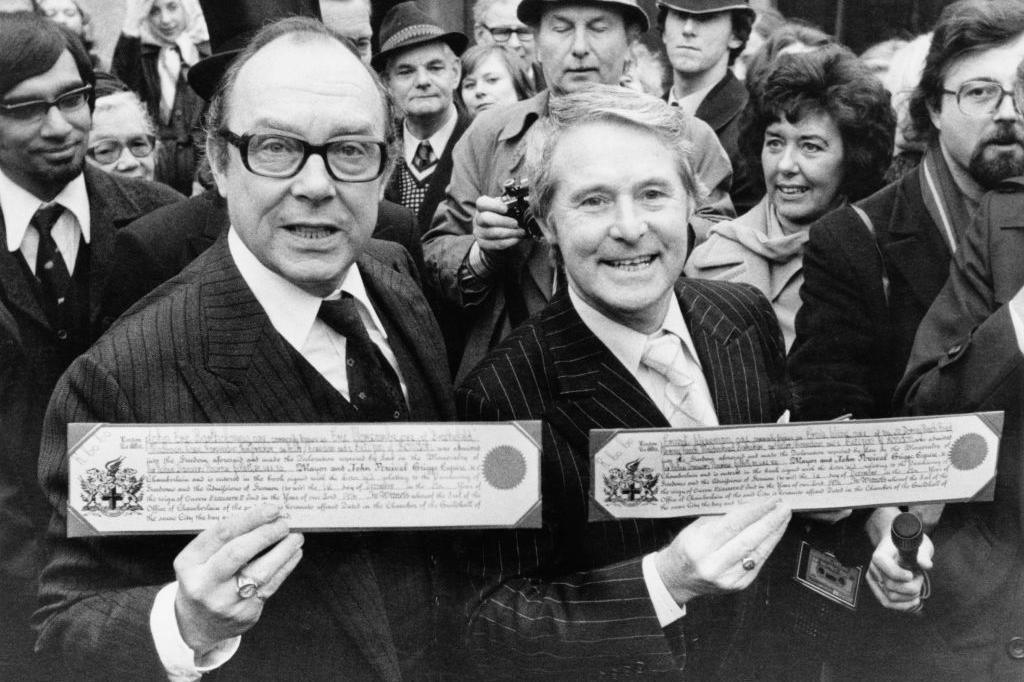
Eric Morecambe and Ernie Wise brought some sunshine when they were honoured in 1976
It's similar to another - if sadly mistaken - belief that if a freeman is discovered drunk and disorderly, a City police officer will simply take them home with nothing more said.
"This revolves around the fact that as a freeman, you were valuable... and you didn't want to see all these important valuable people being dragged off by the press-gang to join the Navy," says Ms Miller.
During the 17th and 18th Centuries, men of seafaring experience in Britain could be physically forced into the service, external - and getting unsuspecting candidates blind drunk was one tactic used to trap them.
However, the Freedom gave people protection and "sometimes our constables or our beadles would dive in and rescue you when you were drunk", says Ms Miller.
Even so, she doesn't advise today's freemen to give it a go.
"Sadly, if one of our police officers in the City offers to take you home at the end of the night, I think it might be a completely different thing," she laughs.
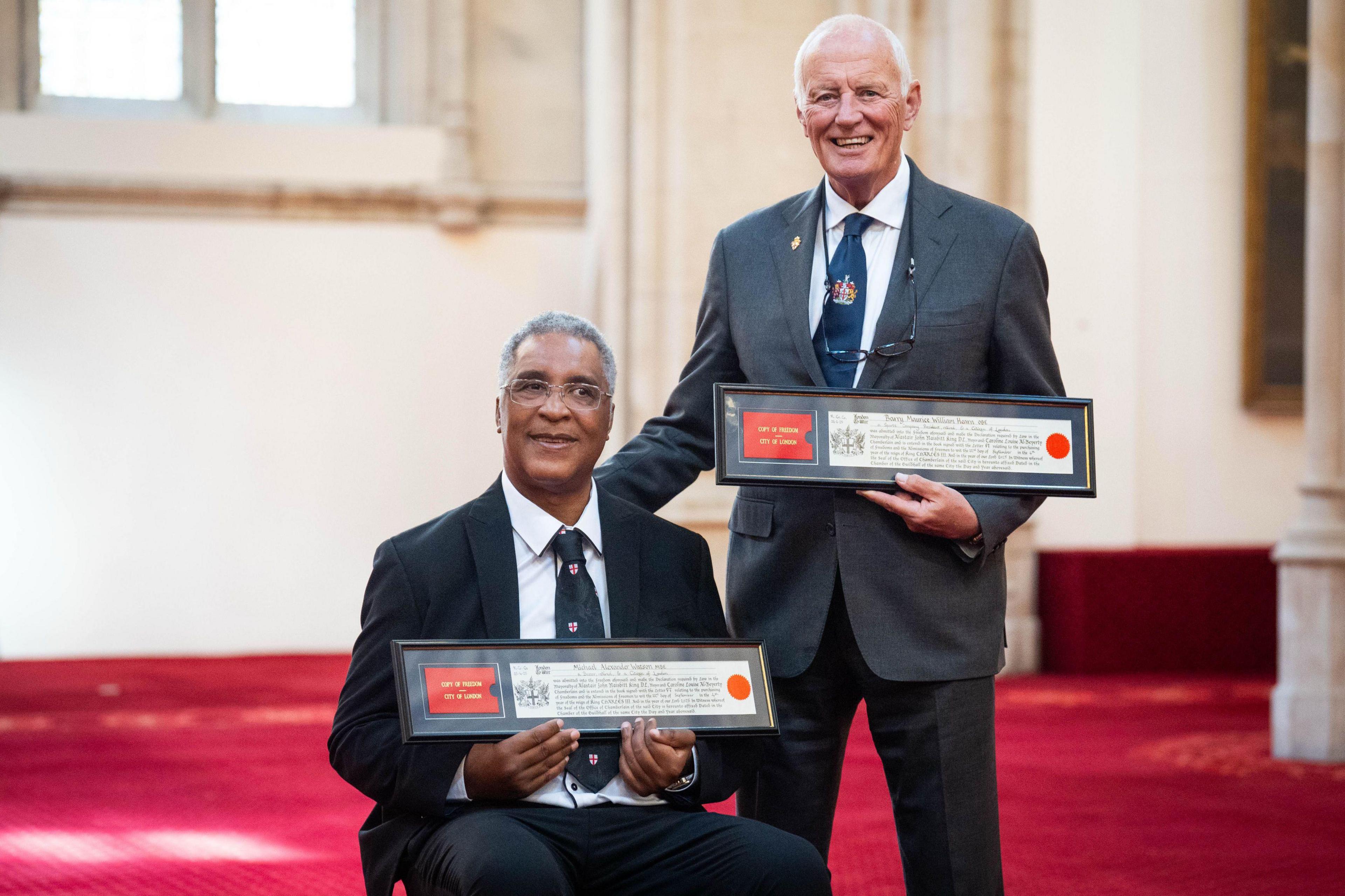
Freedom ceremonies happen regularly with boxer Michael Watson and promoter Barry Hearn receiving theirs on Monday
Elms considers the honour to be "something that means a lot to me".
"This is the city that has nourished me and intrigued me and given me my life, and I'm really, really honoured to be a part of it."
And it's this being part of tradition which often means so much to those given the Freedom, according to Ms Miller.
"Everyone who lives in London is part of London history in essence. But by doing this, you're joining this really amazing part of history."
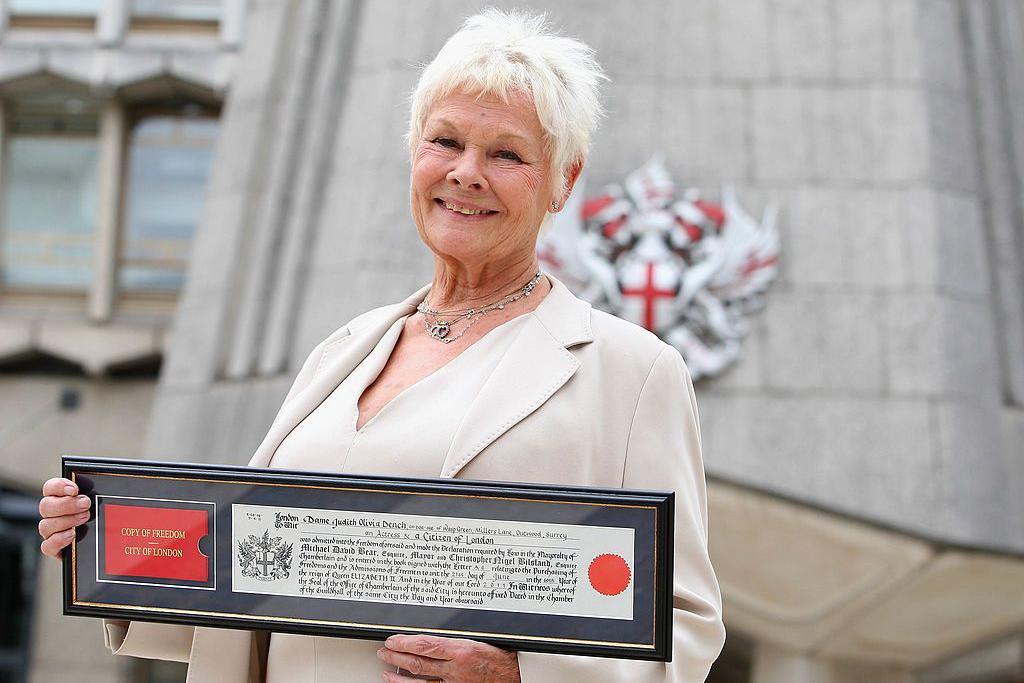
The Freedom document is the same style that has been presented for centuries
Listen to the best of BBC Radio London on Sounds and follow BBC London on Facebook, external, X, external and Instagram, external. Send your story ideas to hello.bbclondon@bbc.co.uk, external
Related topics
- Published2 July
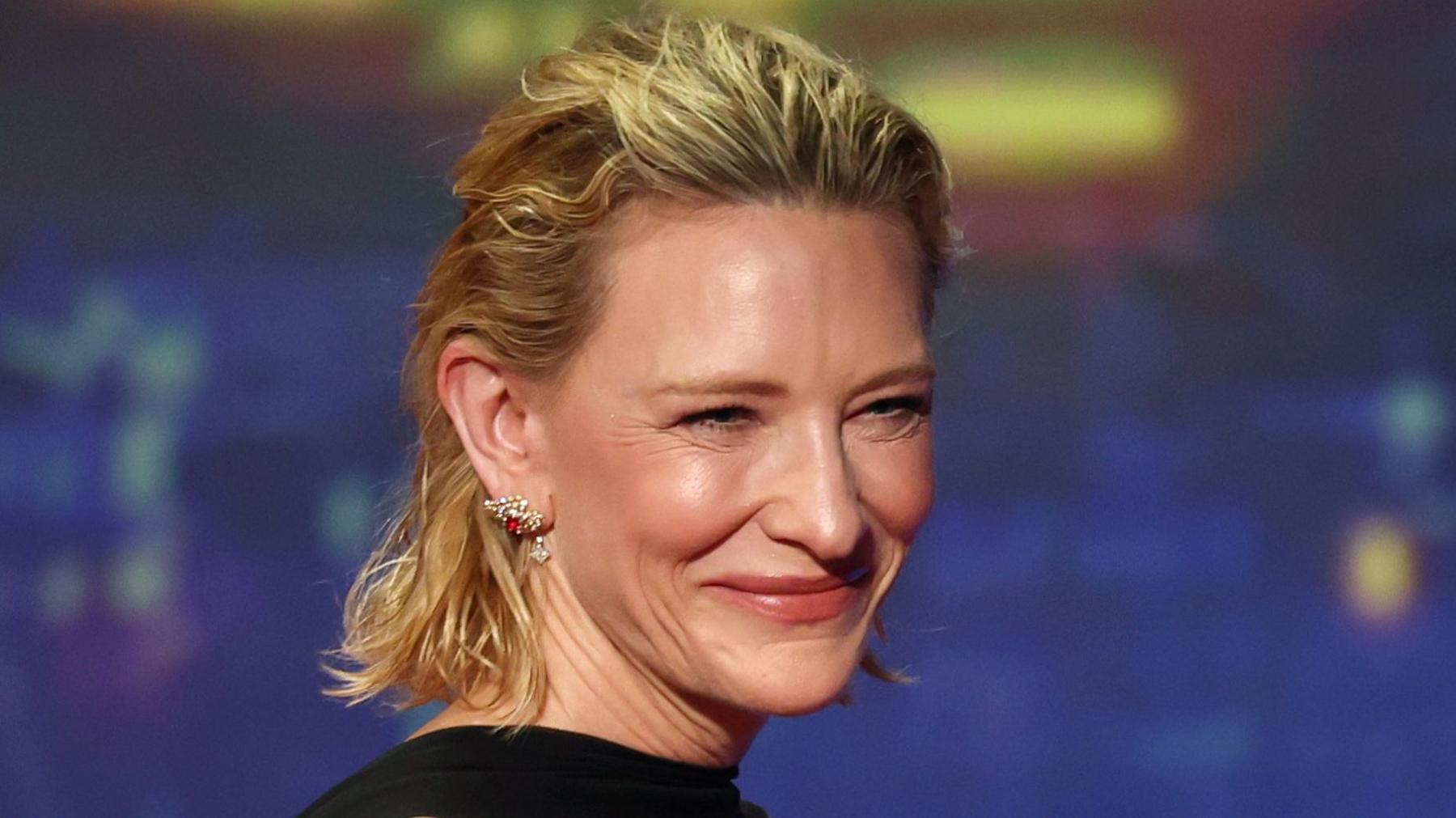
- Published20 February
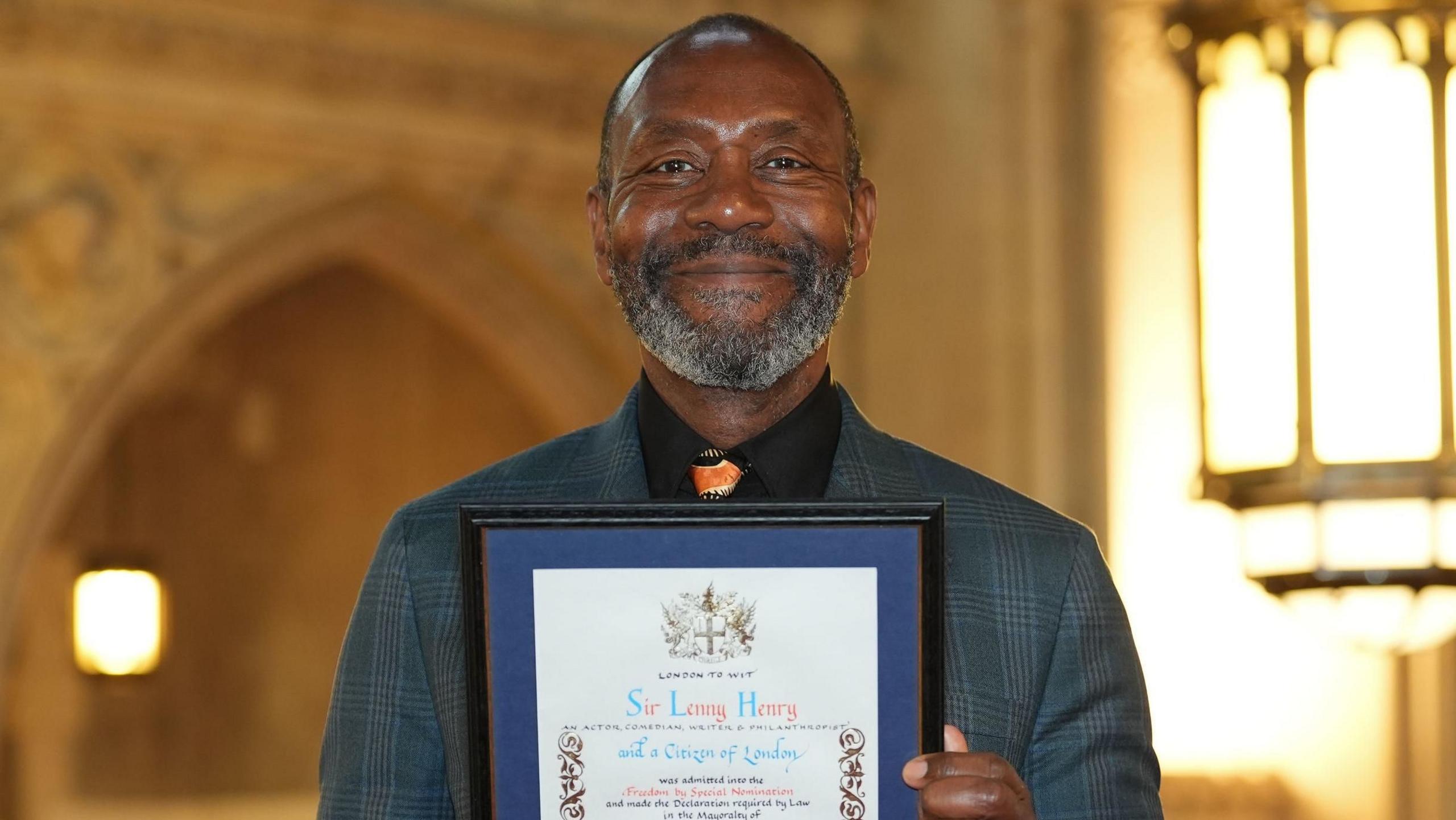
- Published29 September 2024
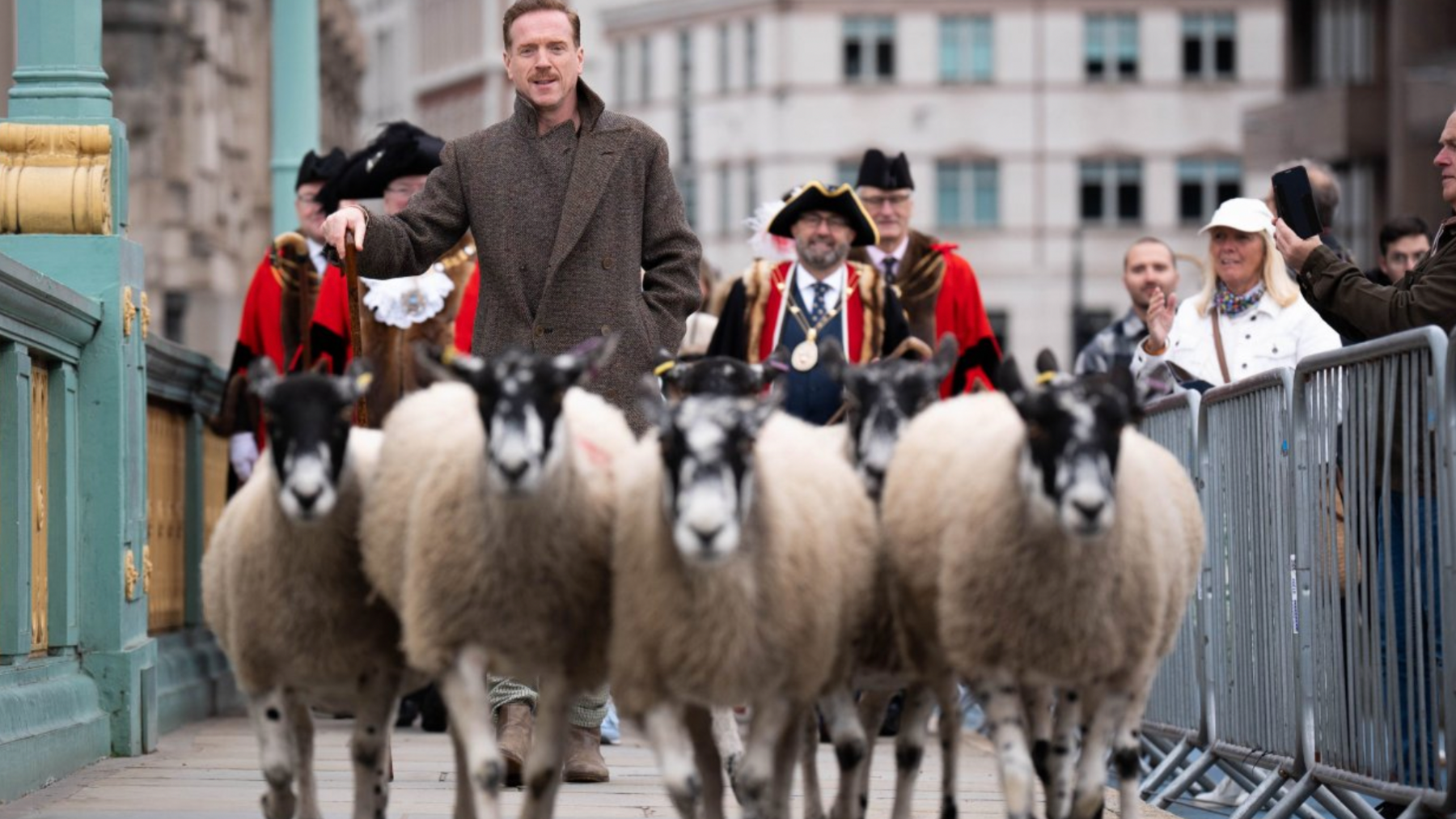
- Published15 December 2024
